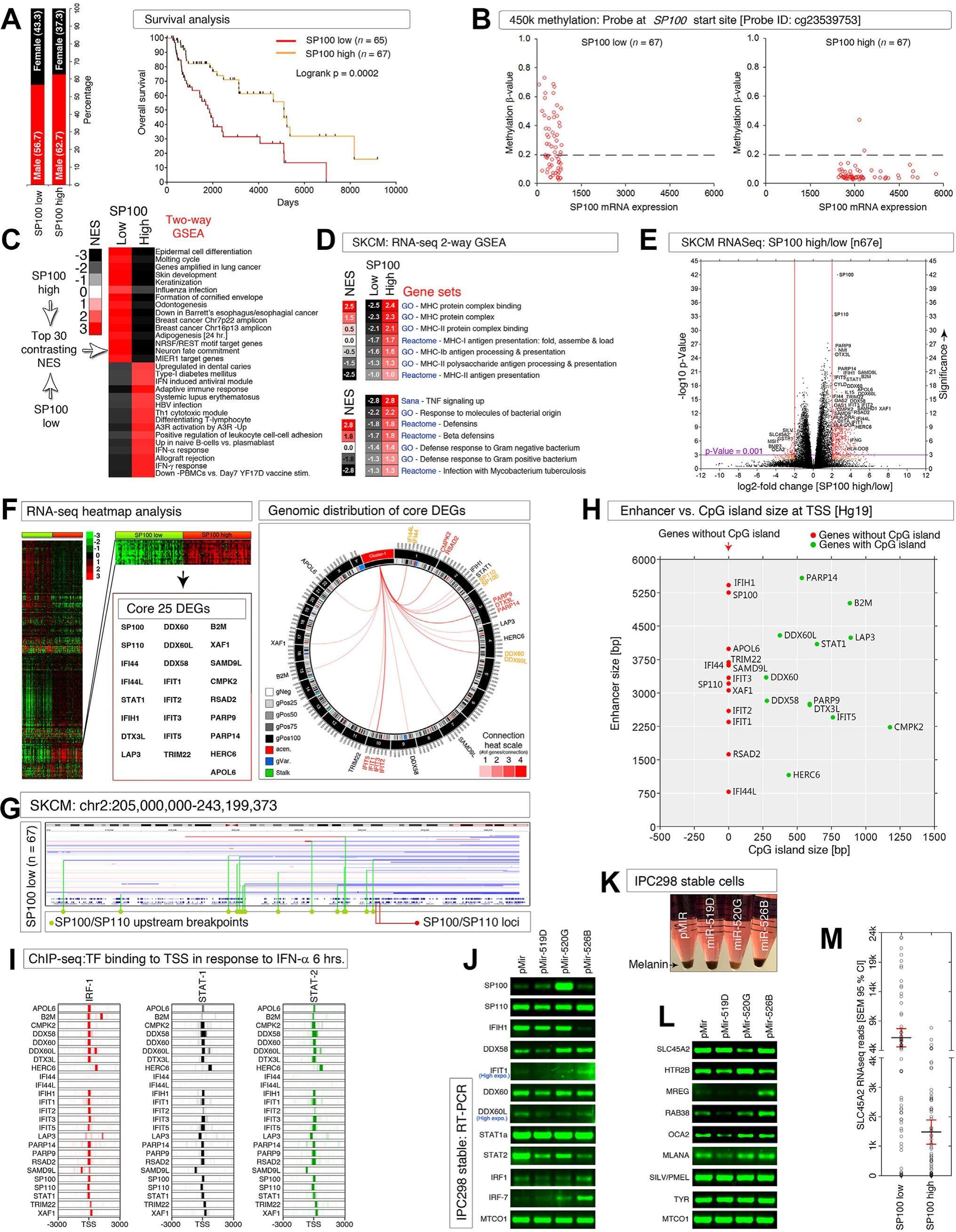
C19MC miRNA-520G induces SP100 antiviral gene transcription and inhibits melanin production in skin cutaneous melanoma


SP100 is an antiviral protein that restricts the productive stage of human papillomavirus (HPV) and multiple other viruses, and viruses in turn block SUMO-1-mediated stabilization of SP100 and promotes its degradation. Interferon (IFN) signaling could still produce more SP100 through transcription to counteract viruses. Viruses also disable the transcriptional up-regulation of SP100 to achieve persistent infection in hosts. Chromosome-19 miRNA cluster (C19MC) miRNAs confer variable levels of resistance to different types of viral infections and here we use SP100 mRNA as our target for understanding the tumor context in which it is expressed or suppressed, and its relationship with C19MC-directed antiviral response miRNAs in human skin cutaneous melanoma (SKCM-TCGA). We show that, high SP100 mRNA expression reflects better survival in melanoma patients and that, the genomic landscape of the SP100 gene is subjected to copy number alteration in SP100Low melanomas with recurrent breakpoints in chromosome-2q between SP100 and SP110 gene loci and centromere. Besides, the C19MC miRNA-520G promotes SP100 mRNA expression and impedes melanin biosynthesis with down-regulated SLC45A2 and increased HTR2B mRNAs which are known indirect regulators of the tyrosine pool and melanin biosynthesis.
